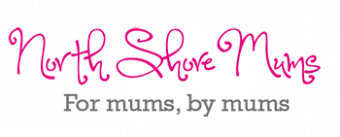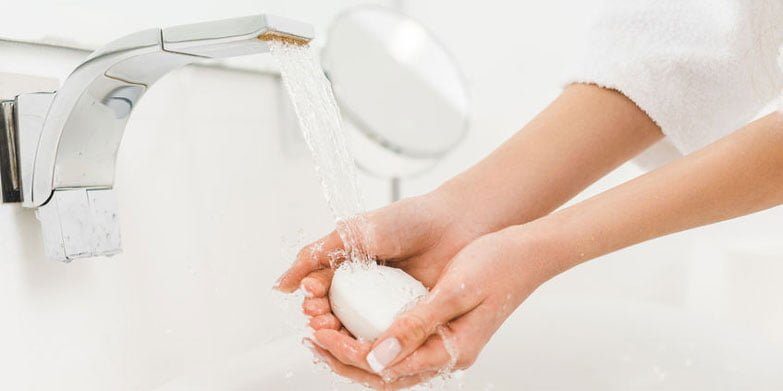We all want to protect ourselves, our loved ones and those more vulnerable from the Coronavirus. ‘Flattening the curve’ is something that needs to happen now, so that our health care system is able to cope with the surges in sickness. Dr Brandon Baraty is a North Shore Dad and a specialist Gastroenterologist, and shares his view on what needs to be done to control Covid-19.
Imagine the healthcare system as a bucket with a small hole at the bottom. As water drips in slowly and drains out from the bottom you can visualise that the bucket never really fills.
Now imagine someone turns the faucet on full- the bucket will overflow in no time! If every water drop was a person, when the bucket was overwhelmed then there were those unfortunate people who overflowed and never had access.
That’s what’s happened in places like Italy where due to sudden surges in sick cases from the virus, their health care system has become inundated. Doctors have had to make nightmarish decisions on who gets to access that last hospital bed and who gets left to die when they could have been treated too if there was more resources. It gives me goose bumps every time I think of it, and I hope I never have to make decisions like that here in Australia.
Now, you could argue that you could make the bucket bigger (more hospitals, more hospital beds, more health care staff and resources) but that would take a long time and require lots of resources and funds which we just don’t have. Or make the hole at the bottom bigger and get people better sooner and out of the health care system faster. Well, this virus issue is happening on top of the usual illnesses and if anything has made the hole smaller. The only option is to turn down the flow of the faucet (or “flatten the curve”.)
It’s time to take things seriously, to unite in the efforts and slow the spread of the novel Coronavirus (aka SARS-CoV-2, Wuhan Coronavirus etc.) before too many people get COVID-19 (the term for being diseased with the novel Coronavirus) and overwhelm our healthcare system.
What can you do to protect yourself from getting COVID-19?
Don’t Panic
Well, first of all don’t panic. Even though this issue is serious and can be scary especially with how it is portrayed by the media, it is still going to be a self-limiting mild disease for most people. But to slow the spread, follow proper virus etiquette and encourage others to do the same.
Wash your hands
Wash your hands like you would want your doctor to wash their hands before touching you. Don’t forget the back of your hands, in between the fingers and the bottom of your wrists. Wash your hands often! Soap and water are best, but alcohol gels and sprays are good when you can’t access soap and water.
Cover your mouth
Cover your mouth with a disposable tissue or your elbow when you need to cough or sneeze.
Don’t touch your face
- Most people don’t realise they touch their face (scratch nose, rub eyes, etc) on average 16 times an hour. This is how you get the virus from your hands onto your face and into your nose and airway.
Keep things clean!
- Clean your mobile phone (it’s a common bridge between your hands and face).
- Clean commonly shared areas regularly (door nobs etc).
- Flush the toilet with the toilet lid down as this virus is also transmissible via the fecal-oral route.
Practice Social Distancing
Essentially, this means:
- Increasing physical distance between yourself and others &
- Reducing the frequency of times you are in groups of people
So, no kissing, hugging, high-5s, handshakes, or close talking (no one likes close talkers anyways), and staying home as much as possible and avoiding places where people congregate like:
- Movies, festivals and shows
- Going to art galleries and museums
- Indoor playgrounds and daycare
- Public transport (if you can)
- Restaurants and coffee shops
Social distancing doesn’t have to be social isolation. With all the great technology these days, you should still stay in touch with your friends and family.
Don’t travel
Avoid travel nationally and internationally.
Work from home
Those who are fortunate enough to be able to do so should work from home.
Get help from Doctors
Doctors can now help you via “tele-health” with Medicare support through modes such as Skype, Zoom, Pexip and Whatsapp or even the phone from the comfort of your home if you fit into the following:
- Over 70 years old
- Pregnant
- A parent of a child under 12 months old
- Immunosuppressed
- Have a chronic disease that has already started treatment
- 50 years old or over and of Aboriginal or Torres Straight Islander descent
To book a Telehealth consult with Sydney Gastrointestinal Specialists in Eastwood, email [email protected] or call (02) 9874 1251.
And don’t let all the loom and gloom get you down! Open the windows to your house and let the fresh air and the sun in, stay hydrated, eat well and consider supplements like Vitamin C and Zinc if you think your diet hasn’t been the best lately. We are all in this together.
This article was written by Dr. Brandon Baraty; BSc. MBBS (Hons), IBUS, FRACP; Gastroenterologist; Endoscopy and IBD Ultrasound; Sydney Gastrointestinal Specialists. He is also a Dad living on Sydney’s North Shore.
Want more information about Coronavirus?
- Real Life: 7 days in self-isolation
- 113 Fun activities to do at home with kids while self-isolating
- Where to find trusted, accurate information about Coronavirus
- Coronavirus and Sydney’s real estate market: What is the impact?
- 9 Tips to boost your immune system and stay calm around Coronavirus
- Late Night Chemists around the North Shore












